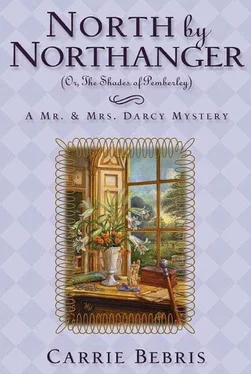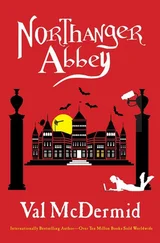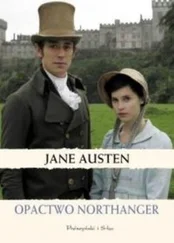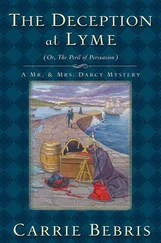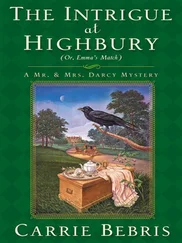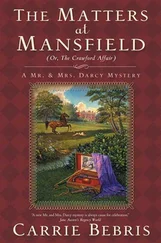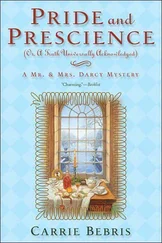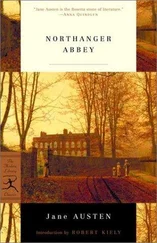“Seat him next to my aunt at dinner. You will benefit from the comparison.”
“Or they will recognize each other as kindred spirits and unite against me.”
“If that is the case, you always have your mother as an ally.”
“I wish I had yours as well.” She paused. “Though in a sense, I feel as if I do. It almost seems at times that she is guiding me.”
“Toward the statuette?”
“Yes. But also through this time of waiting. On several occasions when I have been in need of encouragement, I have found it in something of hers. After Dr. Severn’s most recent call, for instance, I discovered a journal she kept while expecting Georgiana. You must read it, Darcy. Whatever unhappiness your parents endured, in your mother’s final months, they were hopeful.”
He was glad for it. From what he could recall of the period of Georgiana’s anticipation, his mother had seemed to have found a measure of peace. Both of his parents had seemed more in accord. He had feared it was a memory more wishful than accurate.
“I look forward to reading it,” he said.
“There have been times, too, when I—” A soft thump in Elizabeth’s dressing room drew their attention.
“Wait here.” Darcy took a candle and went to investigate. The chamber was empty, but he found the pounce pot on the floor beside the escritoire, its powder spilled onto the rug.
“Your pounce pot fell,” he said.
“I moved it when I retrieved Mrs. Tilney’s letters.” She stood in the doorway, ignoring his direction to stay put. “I must have left it too close to the edge of the desk. I have been dropping things more and more often of late, but this is the first time I have managed to do so from such a distance.”
He set the small vessel back to rights. The maid could attend to the powder in the morning.
They returned to the bedchamber. Elizabeth arched her back and put a hand to the base of her spine. He felt a twinge of guilt at having been away so long, forcing her to deal with Lady Catherine alone and work hard to cover his absence at a time when simply moving through each day presented enough challenges for her.
“Is my son a heavy burden?” he asked.
She smiled softly. “Our child is heavy, but no burden.”
He helped her into bed and she lay on her side while he rubbed her back. “Is there anything more I can do to improve your comfort?”
“Inform your daughter that she can commence her dancing lessons after she is born.”
“I shall, but I make no guarantee that the child will listen. What else?”
“Tell me I am not grown exceedingly fat. My mother says I am big as a house.”
“You have far to go before you reach the size of Pemberley.” He helped her roll onto her back so that he could meet her gaze. “And to me, you have never looked more handsome.” He kissed her. “Anything more?”
“Solve this Northanger Abbey puzzle so that we can send your aunt back to Rosings — and never have to deal with the righteous Mr. Melbourne or that officious Mr. Chase again.”
“All three of them would claim that they are only doing their duty.”
“Perhaps they could do it with less zeal. Or redirect it. If Mr. Chase, for example, would only apply his sharp investigative talents to our cause instead of against it, the case would solve itself.”
“It would have to.”
She was pensive for a moment. “Darcy, what do you suppose happened to the nine ivories that disappeared from Northanger? General Tilney sounds by all accounts to have been an unpleasant man, but I have to agree with his logic. It seems terribly suspicious that the statuettes went missing at the same time Mrs. Tilney visited Pemberley, especially after she suggested giving one of them to your mother. And she was so certain after her return that the birth your mother anticipated would proceed smoothly — perhaps because she left behind nine ivories to replace the one Lady Catherine retained?”
“If my mother received the ivories from Mrs. Tilney, she would not have withheld them from their rightful owner when he demanded them back.”
“Even to protect her friend from his wrath?”
He paused to contemplate. His mother had been a woman of strong loyalties, and the general, a harsh man. Darcy doubted she would knowingly abet theft, but if she had accepted the ivories from Mrs. Tilney with the false assurance of the general’s sanction, then later learned he had not consented, might she have kept silent?
“If she did harbor the ivories, upon Mrs. Tilney’s death she would have surrendered them to the general. But none of Mrs. Tilney’s letters suggest any complicity on my mother’s part. In fact, they indicate the opposite.”
Elizabeth sat up. “Perhaps Lady Anne never knew she had them. Consider, Darcy — during her stay, Helen Tilney spent a great deal of time with her hands in the soil of your mother’s new garden. She could have buried the statuettes without anyone’s knowledge. Did you notice how often she referred to the garden after she returned to Northanger? And the quilt she created — it is in the nursery. Its pattern depicts the garden. I believe it possible that she was trying to tell Lady Anne the ivories were somewhere in the garden, without making an explicit statement that would compromise your mother. Perhaps the quilt holds a clue to their whereabouts.”
He reviewed the letters. Indeed, Mrs. Tilney mentioned the garden in nearly every one. “She specifically refers to lilies of the valley and marigolds. The lilies of the valley appear in her condolence letter, but she brings up the marigolds repeatedly.”
Elizabeth laughed softly. “The marigolds. Of course.”
“Why ‘of course’?”
“Marigolds — Mary’s Gold. She buried her treasure with Mary’s gold.”
“If she did, we will unearth it tomorrow.”
They then set aside thoughts of ivories and letters and people from the past. He asked what else had transpired during his absence, and enquired more closely about her health. He was glad Georgiana had seized the initiative and sent for Dr. Severn. He was also glad the doctor was due to return soon and remain with them for the remainder of their wait. Elizabeth’s time approached faster than he cared to contemplate.
The sound of a door opening in Elizabeth’s dressing room drew their notice toward the open doorway. “Who enters?” Darcy asked.
One of the housemaids came to the doorway. “Begging your pardon, sir, ma’am.” She offered a flustered curtsy. “I just banked Mrs. Wickham’s fire one last time before retiring, and I thought I would check yours as well. I did not expect to find you awake. I am terribly sorry to have disturbed you.”
“Thank you, Jenny,” Elizabeth said. “Our fire is fine.”
“Again, my apologies, ma’am. Good night.” She left them, closing the door behind her.
“Lydia’s fire is restored. One crisis addressed,” Elizabeth said as she settled into bed. “Lavish some attention on Lady Catherine after breakfast and a second will be dispatched. I then need only find a husband for Mary sometime between dinner and tea, and all of our houseguests will be content.”
Darcy snuffed out the candle and joined her. “How long do you expect that to last?”
“Approximately six minutes.”
Our garden is putting in order by a man who bears a remarkably good character.
— Jane Austen, letter to Cassandra
Elizabeth and Darcy found Lady Catherine waiting for them at the breakfast table, where Darcy’s meal comprised three courses: an upbraiding for his neglect of his aunt, a litany of the evils Elizabeth had perpetrated against her, and a generous portion of indignation over her ladyship’s being forced to coexist in the same house as Mrs. Wickham. Fortunately, only Elizabeth overheard her criticisms; Darcy moved their discussion to a more private venue when her parents entered the breakfast room, and Lydia slept so late that she missed breakfast altogether.
Читать дальше
